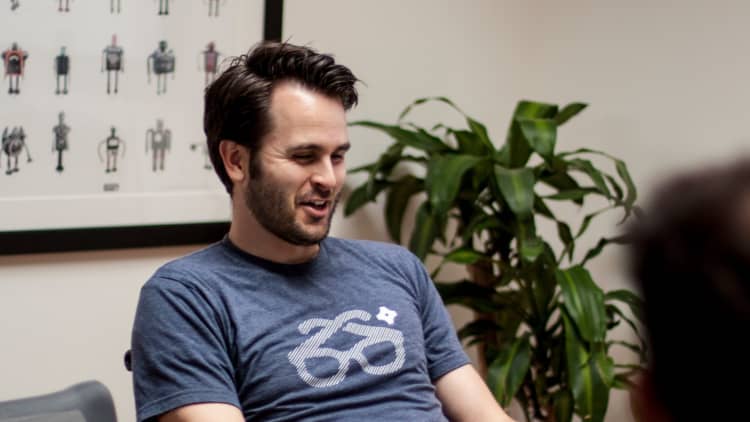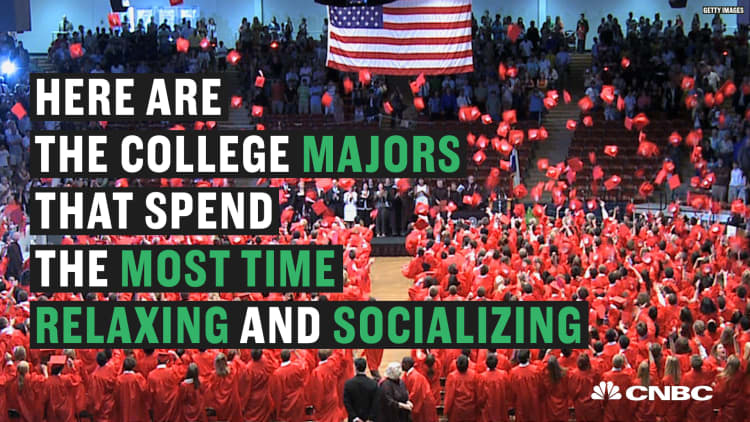Whether you are a student, a professional or an entrepreneur, learning is a vital part of getting ahead. But some people seem to be better learners than others.
Stanford professor Candace Thille is an expert in learning. She teaches at Stanford's Neurosciences Interdepartmental Program and is the Director of the Stanford Open Learning Initiative and the Co-Director of the Stanford Lytics Lab.
Thille has found that many students could be great learners but fall into unproductive learning habits. She tells CNBC Make It, "I think there are a lot of misunderstandings for students about how to learn."
These five hacks can turn anyone at any stage into a great learner and help eliminate habits that waste your time:
1. Ditch the highlighter
Highlighters can be a waste of time says Thille. "If there is one thing I could do, I would take highlighters away from students," she explains.
There is nothing about highlighting that makes learning easier, she explains: "Just highlighting something doesn't commit it better somehow to your memory."
Instead of mindlessly underlining something you want to learn, Thille suggests finding important information and paraphrasing it in language that makes sense to you.
"If you thought that point was important, try and restate it in your own words," she says. "Try and make sense of out it because you're not really trying to commit it to memory, you're trying to extract meaning out of it."
2. Embrace difficulty
Thille finds that students are often tempted to spend lots of time studying things that they understand and are discouraged by things that are hard for them. This, she argues, holds students back from meeting their full potential.
"Often students think, 'If I can move through something really quickly that means that I learned it' and 'Things that are hard for me, things that I struggle with, I'm not learning.'"
This mentality leads students to prioritize their time incorrectly. Spending more time with difficult content will help students make the most of their study efforts.
"Really engaging in things that are hard and seem confusing is a much better study strategy" than focusing on the information they already understand, says Thille.
3. Don't cram
If you want to learn something and actually put it to use, then cramming is the wrong approach says Thille. "I think students know this, but they still do it," she says.
Cramming can be helpful for students who want to be able to regurgitate information, but it is not useful for those who want their studying to go to good use. "If your goal is to just pass the test, the cramming actually works fine," she admits. "You can cram a lot into your brain and spit it out the next day and probably do OK on the test."
However, if "you're trying to learn something because you actually want to put it into use later on, then spacing your studying and spacing your practice is much better for longer-term learning," says Thille.
4. Seek critical feedback
"The other thing is actively seeking critical feedback," says Thille. Too often she finds that students look for reassurance instead of feedback.
Students have much to gain from those who provide critical feedback. Tough critics and harsh graders can help show you where you need to improve. When it comes to learning, listening to positive feedback is not always useful — students often already know what their strengths are.

5. Persist
"The other thing that I would love for students to get is that their intelligence is not fixed," says Thille. "There's not really such thing as 'math people' and 'literature people.' It's not like innately your brain can't do it."
Thille explains that even if people have strengths and weaknesses, it doesn't mean that someone is incapable of mastering a subject.
"That's not to say that there aren't individual differences that there aren't differences or predispositions," she says. "There are."
"If you haven't practiced a lot doing math it might be harder for you, but you're just as capable," Thille says. "It's not that your brain is wired wrong and you just can't do it. It is just going to be a struggle and you need to practice and persist, but you will be able to get it."
Like this story? Like CNBC Make It on Facebook
Don't miss:
Bill Gates: US college dropout rates are 'tragic'
Evan Spiegel didn't want to apply to Stanford. This is why he did
Students who work actually get better grades—but there's a catch




